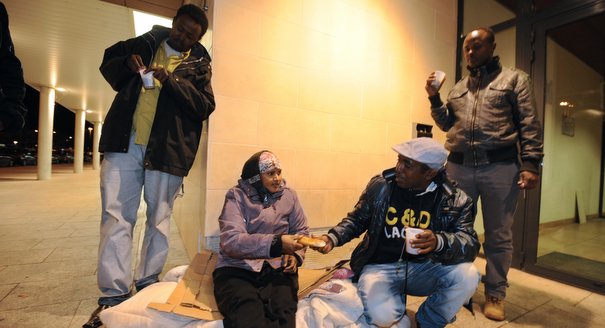It was World Refugee Day this past Wednesday. Also, this past week saw the 27th anniversary of the signature of the Schengen Accord that abolished border controls between many European Union countries.
You would imagine that the EU member states that never cease to extoll the virtues of their commitment to human rights, values, and democracy would have reason to celebrate these two events.
Not a bit of it. The reason is that the 27-member bloc is too busy building the ever higher walls for “Fortress Europe”.
One reason, or excuse, is that the euro crisis, which has had the continent lurching from one calamity to the next, has boosted the rise of far-right wing and populist parties.
These parties all have one thing in common: They want their governments to get tough on refugees because they believe that foreigners are likely to be criminals and that they take jobs away from locals.
In other words, their aim is to close the door to as many as possible of the tens of thousands of refugees who are fleeing war and famine. They also want to reintroduce border controls.
This is classic stereotype reasoning. It is all the more sellable with the rise of unemployment throughout many countries.
For these reasons, these parties want their governments and the EU to take every possible measure to block foreigners’ entry into any EU country, through administrative measures, and also tighter border controls — which means dismantling Schengen.
The Commission and the member states are unwilling to face down the populists even though they chisel away at the principles and values that the EU is supposed to represent to the outside world.
Indeed, the Commission is now trying to reach an agreement with member states and the European Parliament on how to establish common conditions for refugees and asylum seekers, allowing tens of thousands to be held in detention camps throughout the EU.
It is called the “Reception Conditions Directive”. It’s a pet project for hardline law and order interior ministers.
Organizations such as the European Council on Refugees and Exiles and the European Association of Lawyers for Democracy and World Human Rights are extremely concerned about the proposals.
They point out that more and more of the refugees who reach the supposed safe haven of Europe are held in detention camps for longer and longer. A growing number is even put in police custody or held in prisons together with criminal offenders.
This form of imprisonment and the conditions in the detention camps mean that there is no opportunity to work, to spend free time, to engage in social contacts with relatives, or gain access to non-governmental organizations. Nor is there respect for religious and cultural needs. Listen to a fascinating BBC arts program on refugee musicians trying to play together in a detention camp in Germany. Even worse, minors—even unaccompanied minors—may be held in detention, according to the interior ministers’ proposals.
This is shameful.
The European Parliament and the justice ministers from member states are fighting hard to uphold some standards for the treatment of refugees. So is Cecilia Malmström, the Commissioner for Home Affairs. But it is still possible that the interior ministers gain the upper hand with all the damage that will do to our values and our policies.
A similar conflict is taking place on the issue of reintroducing border controls. Here, too, the European Parliament is fighting hard to safeguard public liberties. It already flexed its muscles earlier this month when it stopped the member states from reintroducing border controls without first discussing it with European lawmakers.
But interior ministers continue to push for tighter control, with the German interior minister and others asking for the re-establishment, on a case by case basis, of border controls for reasons of national security or sovereignty.
This is despite the fact that a Europe without borders, for the majority of the 27 countries, is one of the things people like most about the EU. And isn’t it true that the EU needs all the popularity it can muster? Especially now, in the middle of the euro crisis? Let’s hope that it will choose the right kind of popularity, and not the wrong kind of populism.






